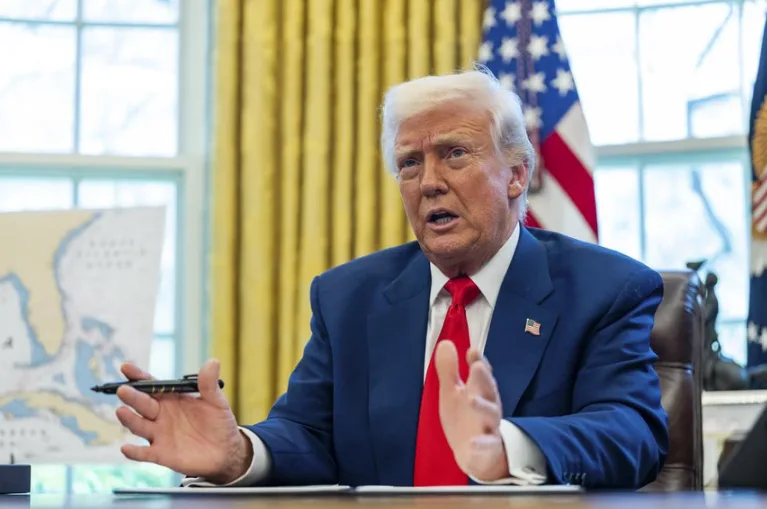The U.S. Supreme Court on Saturday temporarily blocked the Trump administration from deporting a group of Venezuelan migrants accused of gang affiliation, invoking a rarely used law dating back to the 18th century.
President Donald Trump last month activated the Alien Enemies Act of 1798 (AEA) to authorize the arrest and deportation of Venezuelan nationals allegedly linked to Tren de Aragua, a criminal gang with origins in Latin America. Under the directive, the detainees were to be expelled to a maximum-security prison in El Salvador.
The Alien Enemies Act—an obscure statute enacted over two centuries ago—has historically only been enforced during the War of 1812, World War I, and World War II. Its sudden use in peacetime immigration enforcement has drawn sharp criticism from human rights advocates.
In a brief order issued early Saturday, the Supreme Court ruled: “The government is directed not to remove any member of the putative class of detainees from the United States until further order of this court.”
The ruling came in response to an emergency appeal filed by the American Civil Liberties Union (ACLU) on Friday night. The ACLU warned that a group of Venezuelan detainees being held at a facility in southern Texas had been told they faced imminent removal, possibly within hours.
According to the ACLU, many of the detainees had already been loaded onto buses “presumably headed to the airport,” with no opportunity to legally challenge their deportation or present evidence in their defense.
Attorneys representing several Venezuelans previously deported under the AEA claimed their clients had no affiliation with Tren de Aragua, had committed no crimes, and were targeted primarily due to visible tattoos—a tactic criticized as profiling.
President Trump, who has made immigration enforcement a central pillar of his political agenda, has accused Venezuela of “perpetrating an invasion” by allegedly allowing Tren de Aragua members to infiltrate the U.S. southern border.
In a prior ruling issued earlier this month, the Supreme Court stated that any individual facing deportation under the Alien Enemies Act must be granted due process, including a chance to legally contest their removal.
Despite a federal judge’s injunction in March, the administration proceeded with a wave of deportations under the AEA. Among those deported was Kilmar Abrego Garcia, a Maryland resident, whose removal the White House later acknowledged was due to an “administrative error.” His case has since become a focal point of legal and diplomatic tensions between U.S. officials and the Salvadoran government.
The deported individuals are currently being held in El Salvador’s Terrorism Confinement Center, a high-security facility designed to house up to 40,000 inmates. Conditions inside the prison have been described as harsh—detainees are confined in windowless cells, sleep on bare metal bunks, and are denied visitation rights.
The legal and humanitarian fallout from the AEA deportations is still unfolding, as courts, immigration advocates, and international observers scrutinize the administration’s unprecedented use of a centuries-old law in a modern immigration context.


